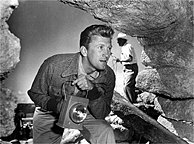Why the Bias?
- Ignorance. A reporter is expected to be able to show up anywhere in the world without prior knowledge, conduct some interviews via translators, and file a story. This is not adequate with a story as complex as the Arab-Israeli conflict. Knowing neither the language nor the history, they fall back upon the accepted media cliches.
- Access. Arab governments have great practice at threatening journalists who tell the "wrong" story. Conversely, no one has ever felt endangered by being critical of Israel. If you value your life, you'll ignore stories embarrassing to the Palestinians.
- Pack behavior. Journalists hang out at the same hotels and bars and maintain a camaraderie. It can be hard to break that by reporting differently from the pack. No one likes to stick out.
- Ideology. The U.S. media are predominantly left-wing, and today anti-Israel sentiments in the U.S. are overwhelmingly found on the political left.
- Israeli media. When so much of the Israel media is itself critical of Israel and sympathetic to the Arab position, it's hard to fault American journalists who do the same.
However, Jacoby is incorrect when he says that, according to Mr. Biur's account, "the way journalism works accounts for why the media get so much of the Middle East story wrong - and almost always to Israel's detriment." There is nothing about the way journalism works that inherently leads to pack behavior, ignorance and knuckling under to intimidation. Ignorance is particularly inexcusable. A journalist is obliged to educate himself about his beat. That's Journalism 101.
The blog entry goes into more detail on all these points, and is worth reading. Thanks to Backspin for pointing this out.


<< Home